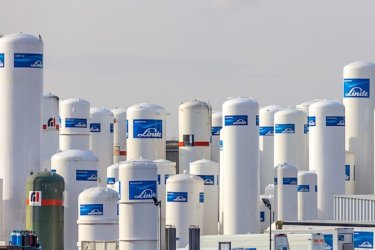
Clean Hydrogen
People color hydrogen based on the original molecule and the source of its creation, even though hydrogen has no color and taste. Clean hydrogen is referred to as the hydrogen that is on the hydrogen color code without grey, brown and black hydrogen. The reason why these 3 hydrogens have been put on the ban […]
People color hydrogen based on the original molecule and the source of its creation, even though hydrogen has no color and taste. Clean hydrogen is referred to as the hydrogen that is on the hydrogen color code without grey, brown and black hydrogen. The reason why these 3 hydrogens have been put on the ban list is they convert from fossil fuel. During the process it will release carbon dioxide into the air. Typically, clean hydrogen is green hydrogen and blue hydrogen. Where green hydrogen is electrolysis from the renewable energy sources: solar or wind and blue hydrogen is produced from steam methane which reform from the natural gas. (Clifford, 2022)
 (source: World Economic Forum,
(source: World Economic Forum,
Grey, blue, green– why are there so many colours of hydrogen? Jul 27, 2021)
The common features and benefits that clean hydrogen can be used to address the world’s climate change issue. Hydrogen itself is not an energy source since it is generated from energy. For instance: natural gas, wind, solar and biomass etc. However, it is able to carry and considered as storage device of energy. While people use hydrogen to generate electricity it will only release water vapor.
Based on the theoretical framework, hydrogen can be used in a wide field as we mentioned above, it can be used as feedstock, reducing agent and fuel. (Global Hydrogen Review 2023, 2023) With expectations that clean hydrogen can be utilized as the tools for decarbonization in such a case that some industries are high carbon emitted or technology for low carbon emissions are not available.
Many organizations and governments have promoted the benefits of clean hydrogen projects. However, due to the uncertainty and lack of regulatory firms are concerned about the demand for the future market.
The argument proposed is that hydrogen is the gas that leaks easily and has strong warming impact, but it has often been ignored. The reason is that blue and green hydrogen are much more expensive than traditional fossil fuels. This demonstrates that clean hydrogen is still not available in commercial use. (Clean or Dirty: Is Hydrogen the Climate-friendly Energy Solution We Need?, 2022)
In terms of leakage, hydrogen builds up with small molecules. It is normal to be present with very little leaks which do not lead to a serious issue. However, if the leakage of hydrogen accumulates until it becomes high leakage which contains the flammable and explosion risk. Even though clean hydrogen is clean but when it releases a large amount of oxygen into the atmosphere it will lead to water vapor. If water vapor is in a large quantity this may result in changes of climate.
The possible usage and advantage are the replacement of electricity in remote areas, where people can generate it from natural sources by themselves if the local conditions are allowed. This replacement will reduce the transportation cost for traditional fuels. It is more efficient than other green energy sources. For instance, the traditional power plant generates only at 33-35% where clean hydrogen can generate up to 65% of electricity. (What Are the Pros and Cons of Hydrogen Fuel Cells?, n.d.)
Reference:
https://www.cbsnews.com/news/hydrogen-energy-what-is-climate-change/
https://initiatives.weforum.org/accelerating-clean-hydrogen-initiative/clean-hydrogen-and-its-uses
https://www.ricardo.com/en/news-and-insights/insights/hydrogen-colour-codes-explained
https://rmi.org/clean-energy-101-hydrogen/
Global Hydrogen Review 2023. (2023). https://doi.org/10.1787/cb2635f6-en
Clifford, C. (2022, January 14). Hydrogen power is gaining momentum, but critics say it’s neither efficient nor green enough. CNBC. https://www.cnbc.com/2022/01/06/what-is-green-hydrogen-vs-blue-hydrogen-and-why-it-matters.html
https://h2tools.org/bestpractices/hydrogen-leaks
https://w.koreatimes.co.kr/www/nation/2023/02/120_322351.html?cv=1
Images:
https://cases.haas.berkeley.edu/2023/04/hydrogen/
https://www.weforum.org/agenda/2021/07/clean-energy-green-hydrogen/
This article is a part of the class “751447 SEM IN CUR ECON PROB”
supervised by Asst. Prof. Napon Hongsakulvasu
Faculty of Economics,
Chiang Mai University
This article was written by Yuchen Luo 641615523
